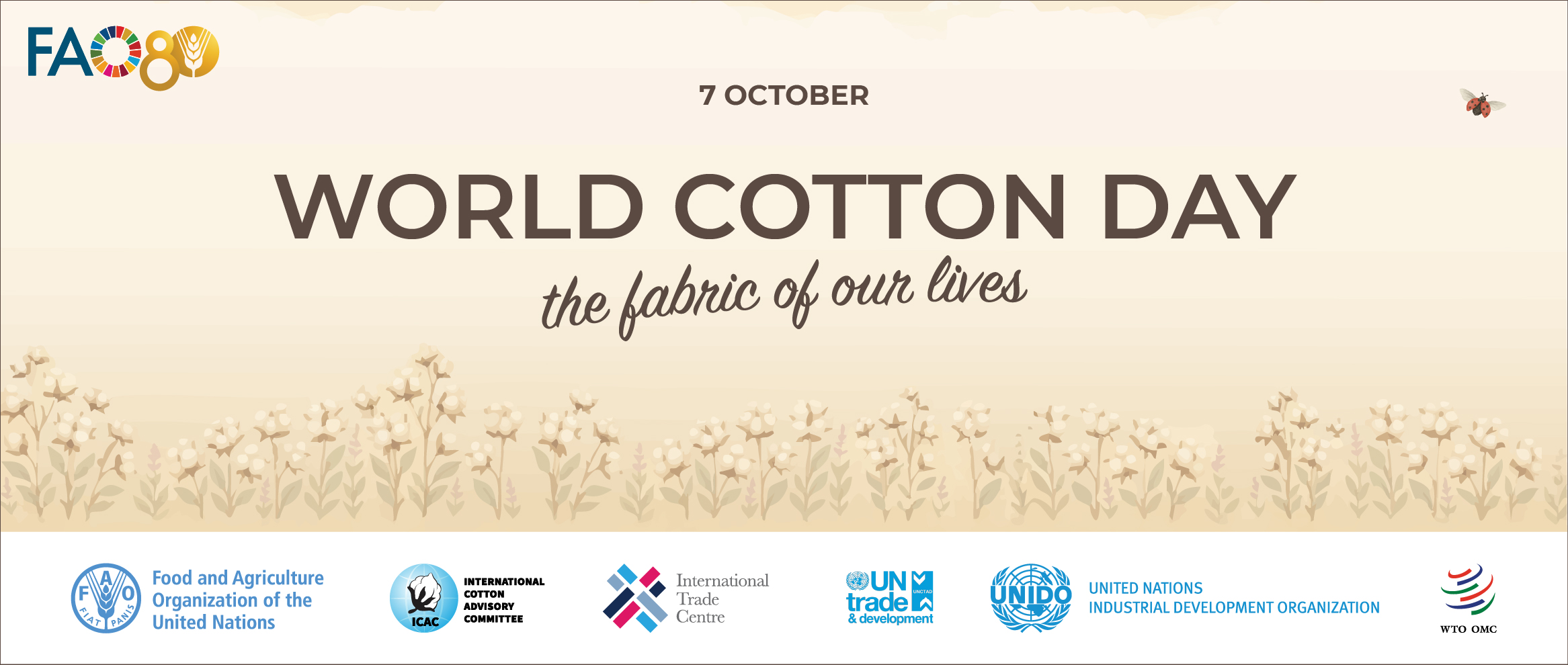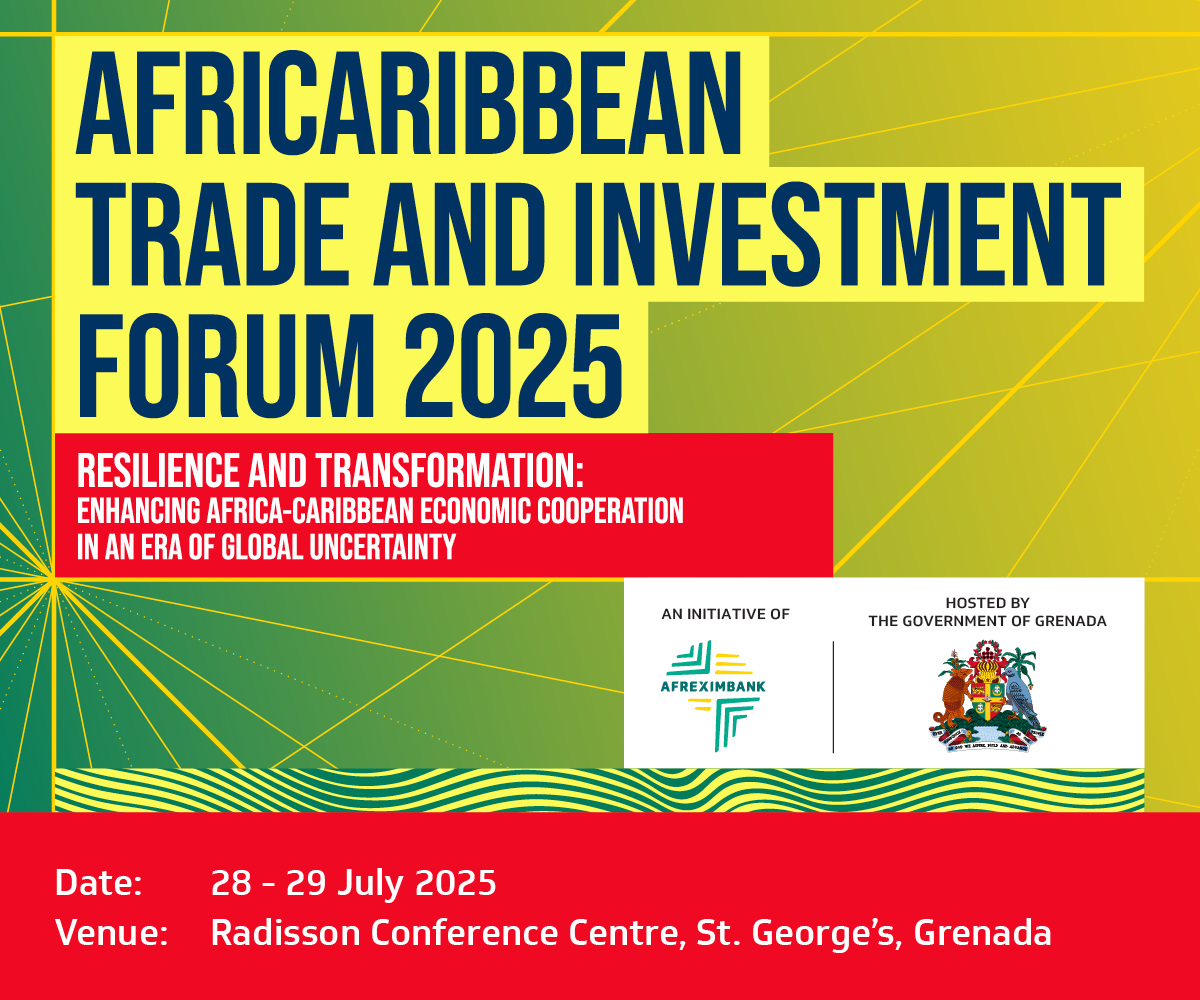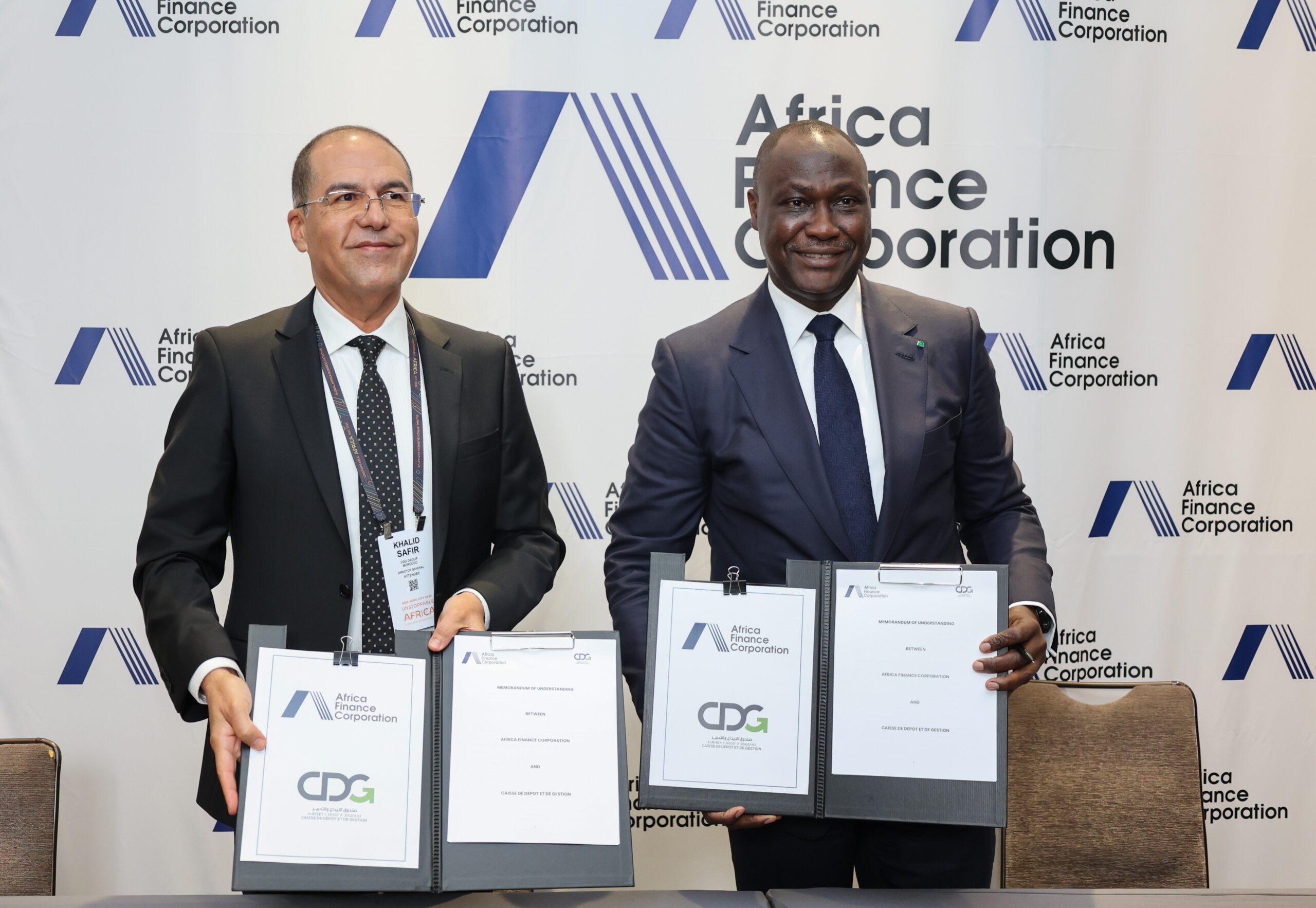Across Africa’s cotton heartlands, farmers and artisans are navigating climate shocks, volatile prices and shifting global markets
On World Cotton Day 2025, held at FAO headquarters in Rome, Africa’s cotton producers and partners showcased how the sector is driving green growth, local value addition and sustainable trade, powering inclusive industrialization and climate-smart growth under the AfCFTA.
Behind the progress is resilience. Across Africa’s cotton heartlands, farmers and artisans are navigating climate shocks, volatile prices and shifting global markets.
An uncertain horizon for cotton producers
Cotton is the backbone of rural economies across Africa – from Chad to Zambia and Tanzania – but the sector faces mounting challenges. Global trade uncertainties such as the expiration of AGOA preferences and tightening sustainability standards are reshaping export opportunities.
On the ground, farmers contend with erratic rainfall, soil depletion and limited access to technology and finance. A lot of cotton is exported raw, leaving local value and job opportunities untapped.
Across Africa, cotton sustains millions – farmers, spinners, weavers and fashion entrepreneurs. For many women and youth in rural areas, it is a primary source of income. When the sector grows sustainably, entire communities benefit: more children go to school, families invest in livestock and small businesses flourish.
But when prices fall or yields drop, effects ripple through economies and households alike. Sustainable cotton farming, fair trade and local transformation are therefore essential to inclusive development – and central to Africa’s industrialization goals under the African Continental Free Trade Area (AfCFTA).
Cotton communities spin a new future for Africa’s rural economy
At World Cotton Day 2025, the International Trade Centre (ITC) joined the FAO, WTO, UNIDO, ICAC, and African governments – including the Cotton Four (Benin, Burkina Faso, Chad, and Mali) alongside Niger and Côte d’Ivoire – to reaffirm a shared commitment: strengthening the cotton-to-clothing value chain from field to fashion.
Through initiatives such as the EU/OACPS Cotton Project, GTEX/MENATEX and the Ethical Fashion Initiative (EFI), ITC is helping farmers, artisans and entrepreneurs climb the value chain and build climate resilience.
In Tanzania and Zambia, thousands of smallholder farmers are transforming how they grow cotton. Instead of burning crop residues, they now use them to make biochar – a natural fertilizer that improves soil health, boosts yields and reduces emissions.
In just one year, more than 10,000 farmers in Tanzania adopted these climate-smart practices, increasing yields by up to 20%. Across the border in Zambia, 130,000 smallholders have doubled production while earning the world’s first carbon credit payments in the cotton sector.
At the other end of the value chain, women artisans and young designers are turning African cotton into high-value creations. In Burkina Faso, Côte d’Ivoire and Mali, EFI connects local weavers and small fashion businesses to global brands, showcasing sustainable African design at international fairs.
These initiatives not only raise incomes but also inspire a new generation of African entrepreneurs linking agriculture, creativity and climate action.
Through its Global Textiles and Clothing (GTEX) programme, ITC strengthens the competitiveness of manufacturers in Egypt, Morocco and Tunisia, while its UK Trade Partnerships (UKTP) Programme supports firms in Ethiopia and Tanzania to expand intra- and extra-African trade. Together, these efforts support Africa’s ambition to industrialize and create tens of thousands of jobs.
Building an integrated African value chain
Developing the cotton-to-apparel value chain within Africa is critical. Under the AfCFTA, cotton and textiles have the potential to become one of the continent’s most dynamic industries. By investing in value addition, regional trade and sustainability, African countries can retain more value at home, create jobs and compete in global markets. Experts from supply, demand, investment and finance also stressed the need to reinforce extra-continental exports to build the skills and know-how that can, in turn, serve Africa’s internal market.
This is the vision that ITC and its partners are advancing – one where African cotton tells a story of empowerment, innovation and pride, and weaves trade together with sustainable development. As FAO celebrates its 80th anniversary, World Cotton Day 2025 reminds us that cotton is not just a crop – it is the fabric of Africa’s greener, fairer future.






